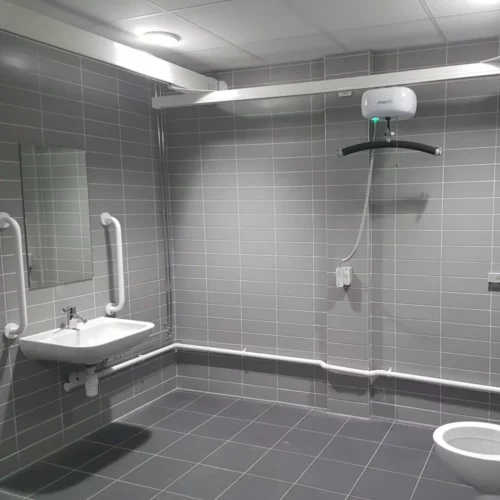SEN School Funding 2025
Posted on 6 March 2025 By Lucy Fisher

In This Article
The UK government has announced an increase in the High Needs Budget for 2025-26 by £440 million, totalling £10.5 billion, aimed at supporting schools for children with Special Educational Needs (SEN). This funding boost addresses the rising demand for SEN provisions and emphasizes financial accountability for local authorities and schools in managing these funds. Schools must collaborate with local authorities to effectively utilize the funding and improve SEN support, while also engaging with parents and community organizations to enhance educational outcomes.
Increased Funding for High Needs
For the 2025-26 financial year, the government is increasing the High Needs Budget by £440 million, bringing the total to £10.5 billion. This boost aims to support local authorities in meeting the rising demand for SEN provision and ensuring high-quality education for all children with additional needs.
The increase in funding is intended to address the financial pressures faced by local authorities, particularly in light of the growing number of children requiring specialist support. Schools and educational institutions should work closely with their local authorities to ensure they can access appropriate funding streams.
Core Elements of SEN Funding
SEN funding for schools continues to follow a three-part structure:
- Element 1 – Core Funding: Provided to all schools through the National Funding Formula (NFF), ensuring base funding per pupil.
- Element 2 – Notional SEN Budget: Mainstream schools receive around £6,000 per SEN pupil before requesting additional top-up funding.
- Element 3 – Top-Up Funding: Local authorities allocate extra funding where the cost of SEN provision exceeds the first two elements.
Local authorities have the responsibility to ensure that this funding structure is effectively managed and distributed to support the needs of individual pupils. Schools must also demonstrate how they are utilising their SEN funding to support student learning outcomes.
Local Authority Budgets & Allocations
Local authorities will receive direct funding allocations based on the High Needs National Funding Formula, which considers:
- The number of children and young people with SEN.
- The historical spending patterns of each area.
- Additional cost factors, including deprivation and health needs.
These allocations will be carefully monitored, with increased scrutiny on how effectively the funding is being utilised to support students. Schools should work in partnership with their local authorities to ensure transparency in financial planning and service delivery.
Support for Specialist Provision
A significant portion of the funding increase will go toward special schools, alternative provision (AP) settings, and resource bases to ensure adequate support for children with complex needs.
Key changes include:
- More flexibility for local authorities to transfer funding between their schools and high needs budgets.
- Continued “safety valve” and “Delivering Better Value” (DBV) programmes to help local authorities in financial difficulty.
- An increase in capital funding to support expanding specialist placements.
- Support for early intervention strategies to reduce long-term costs and improve student outcomes.
This increase in support for specialist provisions acknowledges the growing demand for alternative education settings that cater to children with more complex learning needs. Funding can be used to create more accessible and comprehensive Specialist Education environments. Schools and local authorities should collaborate to ensure appropriate placements are available to meet the demand.
Accountability & Financial Oversight
To ensure effective use of funding, schools and local authorities must:
- Provide clear financial reporting on how SEN budgets are used.
- Demonstrate improved outcomes for SEN pupils.
- Work within strict financial planning guidelines to avoid deficits.
- Ensure funding is spent efficiently on appropriate resources, staffing, and specialist support.
A renewed emphasis is being placed on financial accountability, requiring schools to show exactly how the funding is impacting student progress and overall school improvement. Failure to comply with funding regulations could result in financial penalties or reduced future funding.
What This Means for Schools
For schools, the 2025 SEN funding updates bring opportunities but also financial responsibilities. While the additional funding aims to ease budget pressures, local authorities and schools must ensure it is effectively allocated to improve SEN provision.
Schools should proactively engage with their local authorities to access available funding and plan strategically for the future. This includes identifying gaps in provision, ensuring sufficient staffing, and investing in necessary training to improve SEN support.
Parental Involvement & Community Engagement
Parents play a vital role in shaping SEN provision, and schools are encouraged to work closely with families to understand their children’s needs better. Increased funding should be used to support parental engagement initiatives, ensuring families have access to the necessary resources and guidance.
Community organisations and charities can also play an essential role in supplementing SEN provision, offering additional support services that enhance school-based interventions.
Final Thoughts
With an increased budget and new oversight measures, the 2025 SEN funding framework seeks to balance financial sustainability with high-quality provision for children with additional needs. Schools should stay updated with local authority guidance and ensure their SEN strategies align with funding policies.
While this funding boost is a positive step, ensuring that money reaches the right areas will be crucial in improving outcomes for children with SEN. Schools, parents, and local authorities must work together to create an inclusive, well-funded, and sustainable educational environment for all students.
For full details, refer to the High Needs Funding 2025-26 Operational Guide on the UK government website.
Speak to The Experts
Need assistance with product enquiries, general inquiries, or product support? Our Phonelines are open 9am - 5pm Monday to Friday
0113 519 0319
Or, fill out the form for a call back.


